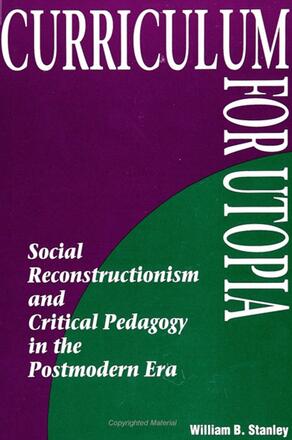
Curriculum for Utopia
Social Reconstructionism and Critical Pedagogy in the Postmodern Era
Alternative formats available from:
Description
This book examines the relationship between contemporary forms of critical theory and social reconstructionism, as they relate and contribute to the construction of a radical theory of education. It illustrates many of the persistent issues, problems, and goals of radical educational reform, including the importance of developing a language of possibility, utopian thought, and the critical competence necessary to reveal and deconstruct forms of oppression. Stanley perceptively and clearly reexamines new challenges posed to various forms of critical pedagogy (including reconstructionism) by the development of postmodern and poststructuralist theory, focusing on the connections and continuities between them.
William B. Stanley is Chair of the Department of Educational Development at the University of Delaware.
Reviews
"Few scholars in the field of education have paid as close attention to the current debates within critical social theory as Bill Stanley. Not only has he formulated a perceptive analysis of the evolutionary trends in continental social theory, critical pragmatism, feminist theory, and other perspectives in contemporary critical thought, but he has managed to analyze how such perspectives have been challenged, debated, misunderstood, and selectively appropriated by educational theorists. While his grasp of the debates within educational theory and ability to distinguish the most central and urgent concerns from the more tangential is truly impressive, it is his ability to extend the analysis and situate it in new, dynamic ways that marks the singular importance of this book. "— Henry A. Giroux and Peter L. McLaren